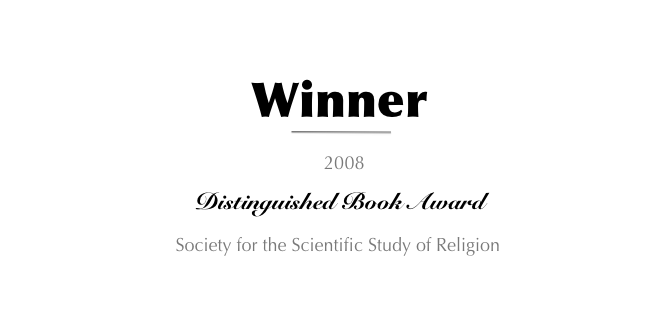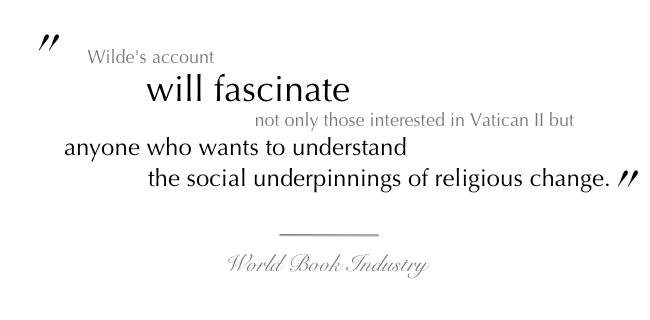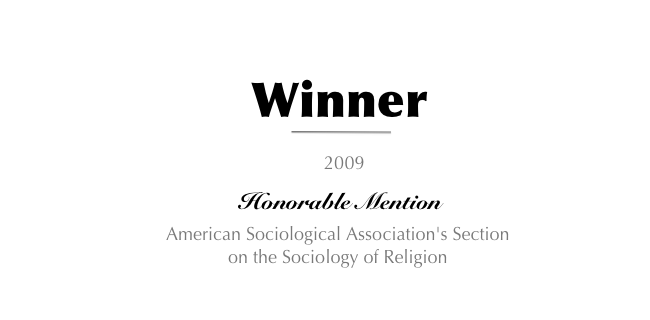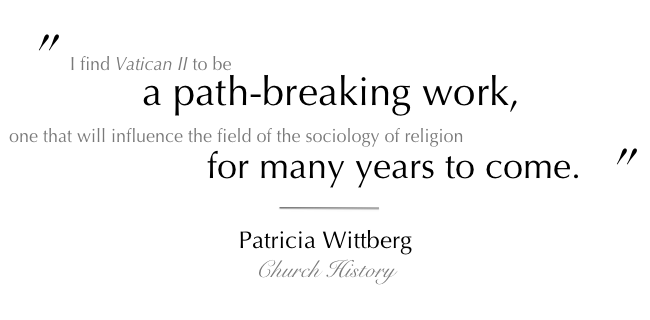Vatican II: A Sociological Analysis of Religious Change (Princeton University Press, 2007), explains the outcome of the “watershed” moment of the Second Vatican Council (1962-65, Vatican II) in the Roman Catholic Church (RCC). Vatican II left almost no aspect of the Church untouched, from removing the requirement for the Latin mass to relinquishing the Church’s claim to power in relation to nation-states to reforming the Church’s definition of marriage so that annulments could be granted on much wider grounds.
In fact, it was through my research on annulments (“From Excommunication from Nullification,” Journal for the Scientific Study of Religion, 2001), that I came to realize that while Vatican II was commonly cited as a crucial moment for the RCC, and was actively studied by historians and theologians, a compelling sociological explanation of it did not exist. Vatican II thus became the subject of my dissertation, and ultimately, after much additional archival research, including gaining access to crucial votes from the Vatican Secret Archive, my book.
Vatican II demonstrates that, contrary to popular theories in the sociology of religion, the bishops from the most competitive environments were the least interested in marketing to their constituents. I argue that this is because, although they were competitive, their religious fields were stable. Bishops from these fields became the leading theologians at the Council. Rather than marketing to their flocks, they tended to be concerned about the Church’s legitimacy in the eyes of other religious leaders. The reforms they supported (and fought most vehemently) were determined by these legitimacy concerns. Vatican II won the 2008 Distinguished Book Award from the Society for the Scientific Study of Religion and received Honorable Mention from the American Sociological Association’s Section on the Sociology of Religion in 2009.
I also demonstrate in the book, and in the related paper titled, “How Culture Mattered at Vatican II,” (American Sociological Review in 2004) that bishops from stable competitive fields allied with bishops from places where the Church was experiencing sudden changes. These bishops, from Africa, Asia and Latin America tended to have a deep belief in the holiness of compromise and a penchant for consensus-building. “How Culture Mattered” demonstrates that these beliefs were essential to the organizations progressives formed outside of the Council hall, as well as the more successful strategies and tactics they used during throughout the course of the Council itself. “How Culture Mattered” won the 2004 Distinguished Article Award from the Society from the Scientific Study of Religion and is widely used in Sociology of Culture classes.
In sum, Vatican II tells a story of how religious leaders changed their institution, and thus history, by enacting their beliefs. I examine the structural factors that lead to these different beliefs in greater depth and much greater quantitative rigor in my final piece of research on Vatican II – the paper titled “Religious Economy or Organizational Field?” which appeared in the American Sociological Review in 2010. Using multinomial logistic regression, it examines how religious competition, state support of religion, and changes in the religious competition of bishops’ home countries affected their support for various Council votes that I obtained from the Vatican Secret Archive.
My research on Vatican II led me to see how deeply external structural factors like power, class and immigration patterns can have profound influences on religious institutions, as it also raised questions about contemporary patterns. In particular, why, if the Roman Catholic Church in the United States was so concerned about what Mainline Protestant leaders thought at the time of the Council, did the American Catholic Hierarchy move away from Mainline, and much closer to conservative and evangelical Protestants views on issues of sex and gender after the Council?
Early in my graduate student career, Mike Hout, Andrew Greeley and I demonstrated that American Protestants had shifted from being a majority “Mainline” in 1940 to a majority “Conservative” by 1960 because of a simple demographic fact: conservative Protestants adopted modern contraceptive methods later than Mainliners and had more children in the Nineteen Forties and ‘Fifties. This finding resulted in the paper “The Demographic Imperative in Religious Change,” which was published in the American Journal of Sociology in 2001, and later reprinted in a variety of other publications. While an important contribution in its own right, “The Demographic Imperative” left me with many questions, particularly regarding why there was such variation in the use (and from what we could tell, support for) contraception within the American religious field. Thus, in many ways, my research has come full-circle, in that I have I returned to this question again in my most recent book, Birth Control Battles.
Altogether, my work on Vatican II, contraception, and religion and politics has convinced me that in order to understand religion in the modern world, one must understand the ways that it has intersected, and still does intersect, with race, class, ethnicity, gender and broader systems of global inequality. Fortunately, more than enough of these intersections exist to keep me busy for the remainder of my career.
REVIEWS
- “Wilde’s innovative methodology has thrown up some extremely interesting ideas. You may not like how she reached her conclusions, but the conclusions themselves are often and fascinating and, for the most part, entirely credible…Wilde offers similar analyses of different sectors of the episcopate–southern European, Latin America, Asian and African–and they add up to an impressive account of the council’s convoluted proceedings and machinations. It’s often said that Vatican II never pleased anyone completely, but this book makes it abundantly clear that it was energized by what Emile Durkheim, quoted by Wilde, termed a ‘collective effervescence’.” — Jonathan Wright, Catholic Herald
- “Vatican II is a historical treasure trove. It breaks new ground in dealing with theories of religious change in institutions, and it answers some key questions about the dynamics of the council… Very few sociological studies rival Wilde’s big picture analysis of huge institutional religious change. Though Vatican II is theory-laden, Wilde writes in an accessible and jargon-free fashion to help us see what was at stake and how good organization makes a difference.”–John A. Coleman, America
- “Melissa Wilde provides a useful narrative of events, stressing how early victories by the progressives created a snowball of anticipation and confidence…She also provides interesting detail…[T]his book is an impressive first essay by a young and innovative scholar.”– David Martin, The Tablet
- “This is an insightful review of the human and spiritual dynamics surrounding the great modern council within Catholicism…Wilde brilliantly examines the possible reasons Vatican II became the most radical ecclesial and cultural phenomenon of the 20th century. Drawing on interviews, secret documents and diaries, and contemporary sociological scholarship, she clearly articulates the dynamic tension between progressives and conservatives and the resulting documents with their profound impact on modern society. This analysis grants the reader a privileged glimpse into the personalities and perspectives of ordinary bishops engaged in extraordinary work.”– John-Leonard Berg, Library Journal
- “Vatican II is destined to be widely read and frequently cited in both church and academic circles.”– James D. Davidson, American Catholic Studies
- “Wilde’s work constitutes a great contribution not only to the sociology of religion, but to our understanding of how religious structures in general are not explainable by arbitrary command, but vibrant, social movement.”– Myles Werntz, Religious Studies Review
- “This book is the result of meticulous research on hitherto inaccessible sources. It demonstrates how legitimacy concerns are central to most organizational processes in religious institutions. . . . Princeton University Press is to be congratulated for promoting significant new research in contemporary ecclesiastical issues.”– Graham Duncan, Studia Historiae Ecclesiasticae
- “Melissa Wilde’s Vatican II: A Sociological Analysis of Religious Change, which offers a clear and compelling account of why the world’s largest religious tradition, Roman Catholicism, changed course on some key political and liturgical matters in the 1960s, represents one important effort to critique the new paradigm.”– W. Bradford Wilcox, American Journal of Sociology
- “I find Vatican II to be a path-breaking work, one that will influence the field of the sociology of religion for many years to come. Historians, too, will appreciate the chance to get inside the workings of a usually opaque process, whose controversies reverberate to the present day. I urge scholars from both disciplines–and interested Church officials and laity as well–to avail themselves of the opportunity.”– Patricia Wittberg, Church History
- “This study is a valuable addition to any student’s understanding of the Council, and should be in every college, university, and seminary library with holdings in the study of the Council. It would also be a good addition to larger parish collections, especially in those with a lively interest in the Council. It is easy to downplay the importance of the Council, or to ascribe simplistic reasoning to the profound results of the Council. But Dr. Wilde has shown the complexity of how those results came about in her areas of study, and what could have been a dry, academic study has been brought to life.”– Cecil R. White, Catholic Library World
- “Wilde has accomplished a monumental task by taking on theoretical insufficiencies of supply-side and organizational field hypotheses, by mining thoughtfully and carefully an enormous volume of qualitative data, and by bringing cultural arguments to the fore in explaining change in organizations through analysis of the Catholic Church.”– Katherine Meyer, Society for the Scientific Study of Religion
- “Wilde’s account will fascinate not only those interested in Vatican II but anyone who wants to understand the social underpinnings of religious change.”– World Book Industry
ADDITIONAL ENDORSEMENTS:
- “Wilde has written the first serious sociological study of the dynamics of the Second Vatican Council. The men who organized the ‘progressive’ faction were not, as is often claimed, theologians who were manipulating bishops, but bishops from the countries where the church was engaged with modernity, especially from South America. Nor did they view their efforts as anything less than a dramatic change from the past. They were great men who accomplished great deeds. After this book, no one will be able to dismiss them.”– Andrew Greeley, Author of The Catholic Revolution
- “Wilde’s big-picture analysis of huge institutional religious change exemplifies a kind of scholarship that is so valuable yet all too rare in contemporary sociology of religion. Ambitious, creative, careful, and fascinating, Vatican II makes a major contribution.”– Christian Smith, University of Notre Dame
- “Using a fascinating array of archival materials, Melissa Wilde here presents an innovative, behind-the-scenes, and groundbreaking analysis of the deliberations of Vatican II. And, importantly, she employs vital concepts from diverse areas of sociology to make sense of the rich empirical data at her disposal.”– Michele Dillon, Author of Catholic Identity: Balancing Reason, Faith, and Power
- “This exciting book is poised to make a big splash in scholarly circles and beyond. Advancing a clear conceptual framework, it is unique in looking at Catholicism through the lens of the diverse national environments that affect the interests and organizational behavior of religious leaders.”– Peter McDonough, Author of Men Astutely Trained: A History of the Jesuits in the American Century
|





